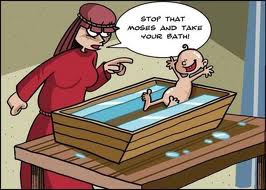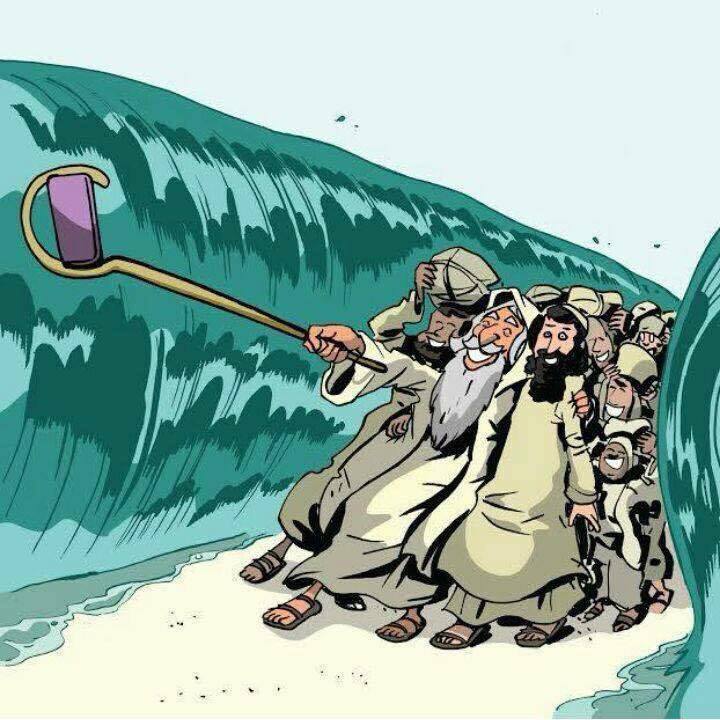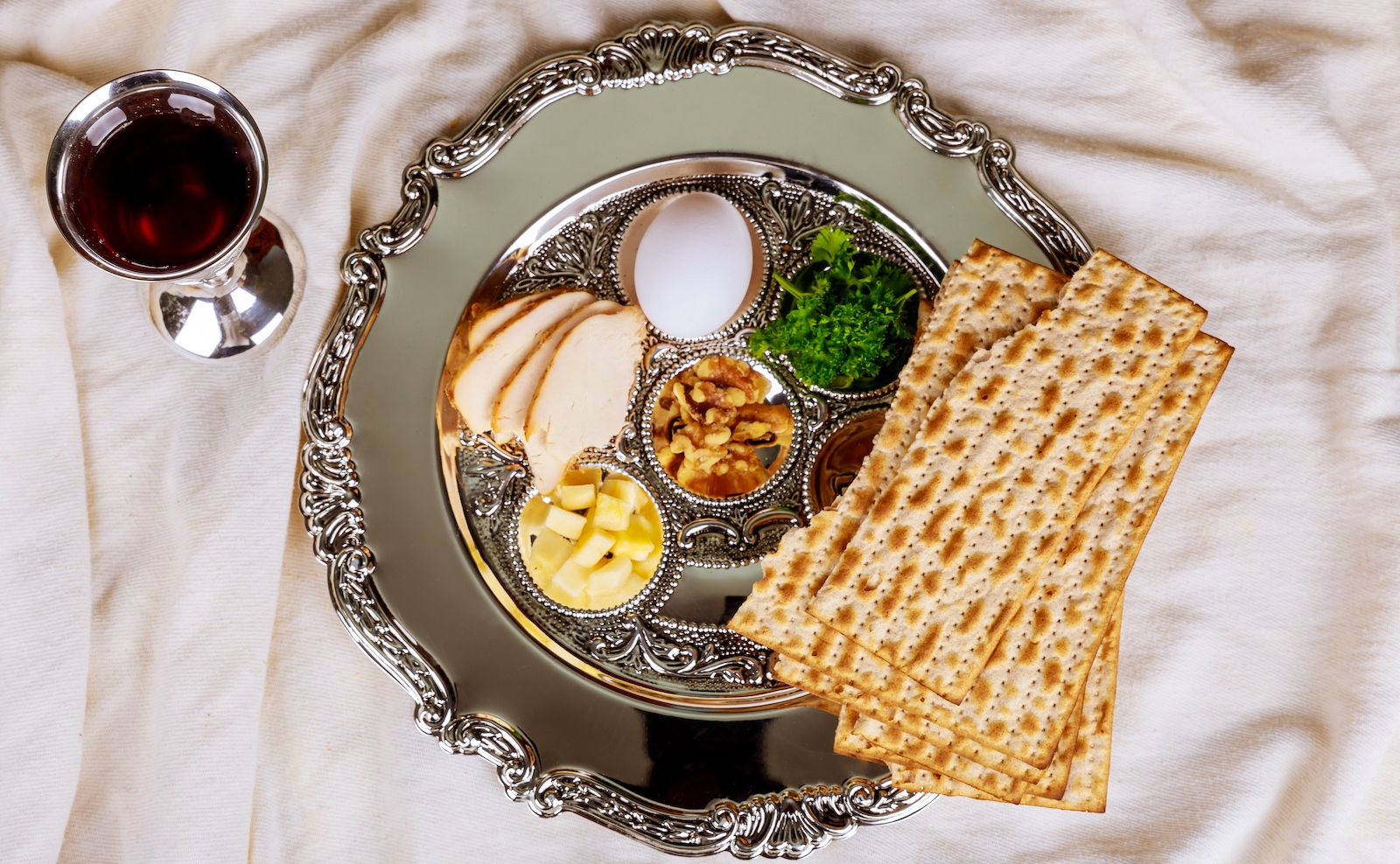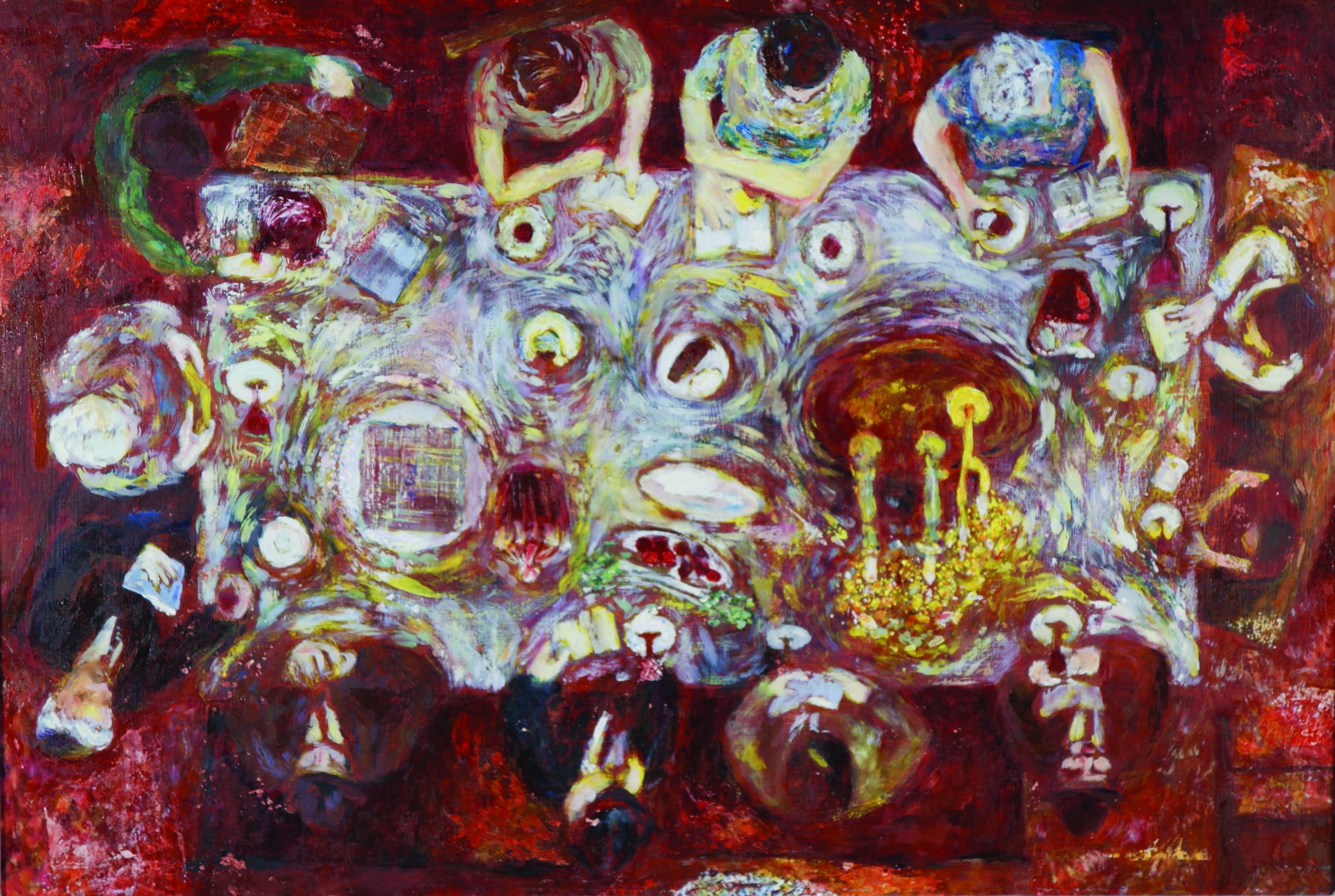Bonjour / Hello [nickname_else_first_name],
Table of contents
1) Perashat Hashavoua - Rabbi Eli Mansour
2) Halakhat Hashavoua (Halakhot related to day to day life) By Hazzan David Azerad -
-Laws pertaining to Pesah
3) Holy Jokes!
1)PERASHAT HASHAVOUA
This Week's Parasha Insight with Rabbi Eli Mansour
Pesah: Redemption Then and Now
In our nightly Arbit service, we describe how G-d brought Beneh Yisrael out of Egyptian bondage "Le’herut Olam" – "for everlasting freedom."
How can we call the Exodus from Egypt "everlasting freedom"? For the majority of Jewish history, sadly, we have not been free. Although we were freed from Egyptian bondage, we have since been driven back into exile, and ruled by foreign nations. In what way did Yesiat Mizrayim (the Exodus from Egypt) bring us eternal freedom?
The Arizal (Rav Yishak Luria, Safed, 1534-1572) taught that the Egyptian exile marked the "mother," so-to-speak, of all future exiles. It is the blueprint of all the exiles that the Jewish People subsequently endured, and it set into motion the process of our nation’s subjugation by other peoples. For this reason, the Arizal explained, the story of Egyptian bondage begins by speaking of Yaakob’s family arrival in Egypt – "Ha’baim Misrayema" (Shemot 1:1). The word "Ba’im" is an acrostic representing the words "Babel," "Edom," "Yavan" and "Madai" – alluding to the four exiles that we have endured. ("Babel" – Babylonia; "Edom" – our current exile; "Yavan" – the period of Greek persecution; and "Madai" – the rule of Persia.)
By the same token, the Exodus from Egypt laid the groundwork for all future redemptions. G-d’s bringing our ancestors to freedom from Egypt set into motion the process of our freedom from subsequent oppressors. And it is in this sense that the Exodus from Egypt brought us "Le’herut Olam" – to everlasting freedom. It created the foundation for all future redemptions, including the final redemption for which we hope, pray and yearn.
This idea makes the Seder experience so much more relevant to our lives. By celebrating and studying the Exodus from Egypt, we reinforce our faith in our future redemption. We are reminded that just as G-d rescued our ancestors from Egypt, He will likewise redeem us from our current state of exile.
As many have noted, the number 4 is a recurring theme at the Seder. This theme expresses the four exiles that we have experienced after the Exodus from Egypt – under the empires of Babylonia, Media-Persia, Greece, and Rome. The various groups of four that are featured at the Seder correspond to these four exiles.
We might suggest applying this correspondence to the four sons described by the Haggadah. The first son, corresponding to the Babylonian exile, is the Hacham, the wise son – because the Babylonian exile resulted in the Talmud Babli, the brilliance and wisdom of the Gemara. The second son, the Rasha (wicked son), alludes to Haman, the evil villain who threatened the Jewish People during the period of Persian rule. The third son, the "Tam" (simple son) poses the question of "Ma Zot" ("What is this?" – Shemot 13:14), alluding to "Zot Hanukah" (the eighth day of Hanukah), which celebrates the victory over the Greeks. Finally, the fourth son is the "Eno Yode’a Li’sh’ol," the son who does not know how to ask. In the current, bitter fourth exile, which has lasted for nearly two millennia, we have so many questions that we cannot even begin to ask. We have experienced so much suffering, so much hardship, and so many injustices, that we are left dumbfounded and speechless, unable to open our mouths and ask what is happening.
Studying the story of the Exodus from Egypt reassures us that our final redemption will indeed arrive, and with it, all our questions will be answered. When the Gemara comes across a question which it cannot resolve, it states, "Teku," which has been understood as an acrostic for the phrase "Tishbi Yetaretz Kushyot U’be’ayot" – the Tishbi, Eliyahu Ha’nabi, will resolve our difficulties and answer our questions. This refers not only to our Halachic queries, but to all our questions. Once the final redemption arrives, we will be transformed from people who are unable to ask to people who ask and receive answers. Everything will become perfectly clear.
May our celebration of our ancestors’ Exodus from Egypt strengthen our faith in our future redemption, and bring us closer to the rebuilding of the Bet Ha’mikdash, speedily and in our times, Amen.
2) HALAKHAT HASHAVOUA
Halachot this week are selected and Translated by Hazzan David Azerad
Pesach Laws, according to the rulings of Rabbi Obadiah Yosef ZT”l
How do you observe the mitzvah " והגדת לבנך " and you should tell your children the story of Yetziat Mitzrayim?
The main mitzvah on Seder night - is to tell the children the story of the exodus from Egypt, and expand on it, even if they don't know how to ask, you should teach them according to their level, and not necessarily only your children but with each person. This mitzvah includes the boys and the girls.
One should read the Haggadah with joy and enthusiasm, and it is appropriate to tell stories and add Midrash Haggadah with words that attract the hearts of the listeners, that by the grace of Hashem, Am Yisrael were blessed, and were able to leave Mitzrayim .Chachamim tell us that whoever elaborates in telling the story of the Exodus from Egypt on the night of Passover and rejoices in that story, the future is to rejoice with the Shekinah in the next world.
Do we have to drink four cups of wine?
Both men and women must drink four cups of wine.
Even the one who does not like wine, must make an effort to drink the four cups, and make the Beracha as usual.You can also do the Mitzvah with grape juice . The measurement of the cup of wine should be at least 86ml.
Bevirkat Chag Kasher Vesameach
David Azerad
3) HOLY JoKeS!!
Selection of funny snippets, loosely related to this weeks parashah or current events, to brighten your day
Hear about the internet search engine for Passover?
It’s called eliYAHOO
What do you call steaks ordered by 10 Jews?
Filet minyan
If a doctor carries a black bag and a plumber carries a tool box, what does a mohel carry?
A Bris-kit!
What cheese is served at the Passover Seder?
Matzah-rella.















